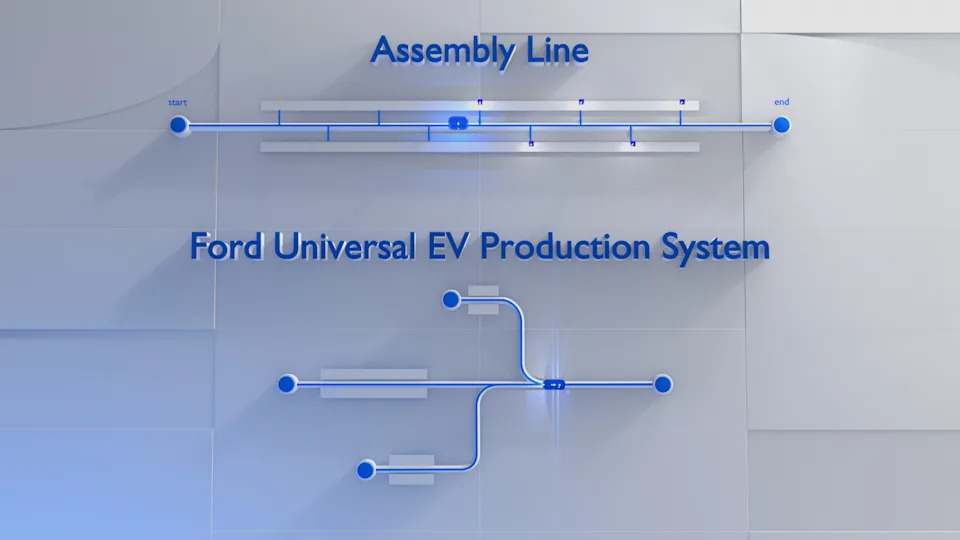
Ford's new EV will be a $30K midsize pickup, built using an all-new production process and platform
Key Points
- Ford's New EV Strategy: Ford announced plans to produce cost-efficient electric vehicles (EVs), starting with a $30,000 midsize four-door electric pickup in 2027, built on the new Ford Universal Platform.**
- Innovative Platform and Design: The Universal Platform will support various vehicle types (sedans, SUVs, vans) with fewer, lighter parts, emphasizing software-defined vehicles (SDVs) for enhanced design and performance.**
- Revolutionary Assembly Process: Ford's Universal Assembly Process introduces an "assembly tree" with parallel subassemblies, aiming to build vehicles 40% faster, with implementation at the Louisville Assembly Plant.**
- Significant Investment: Ford is investing nearly $2 billion in the Louisville plant, creating 2,200 jobs, alongside a prior $3 billion commitment for battery production in Michigan using CATL technology.**
- Financial Turnaround Goal: After a $5.1 billion loss in its Model e EV unit last year, Ford aims to reverse losses and achieve profitability with this new platform and production strategy by 2027.**
Summary
Ford Motor Company unveiled an ambitious plan to revolutionize its electric vehicle (EV) production by introducing cheaper, more efficient EVs, starting with a $30,000 midsize four-door electric pickup in 2027. This vehicle, built on the Ford Universal Platform, will offer spacious interiors and be part of a scalable design supporting various vehicle types with fewer, lighter parts. CEO Jim Farley likened this to a "Model T" moment, emphasizing a radical approach to design, technology, and cost. Ford's innovative Universal Assembly Process, featuring an "assembly tree" with parallel subassemblies, aims to speed up production by 40% at its Louisville Assembly Plant, backed by a $2 billion investment and 2,200 new jobs. After a $5.1 billion loss in its EV unit last year, Ford is betting on this strategy to turn profits by 2027, amidst industry challenges like increased competition and the loss of federal EV tax credits. Additionally, a prior $3 billion investment in Michigan for battery production using CATL technology underscores Ford's commitment to affordability and scale in the EV market.
yahoo
August 11, 2025
Stocks


